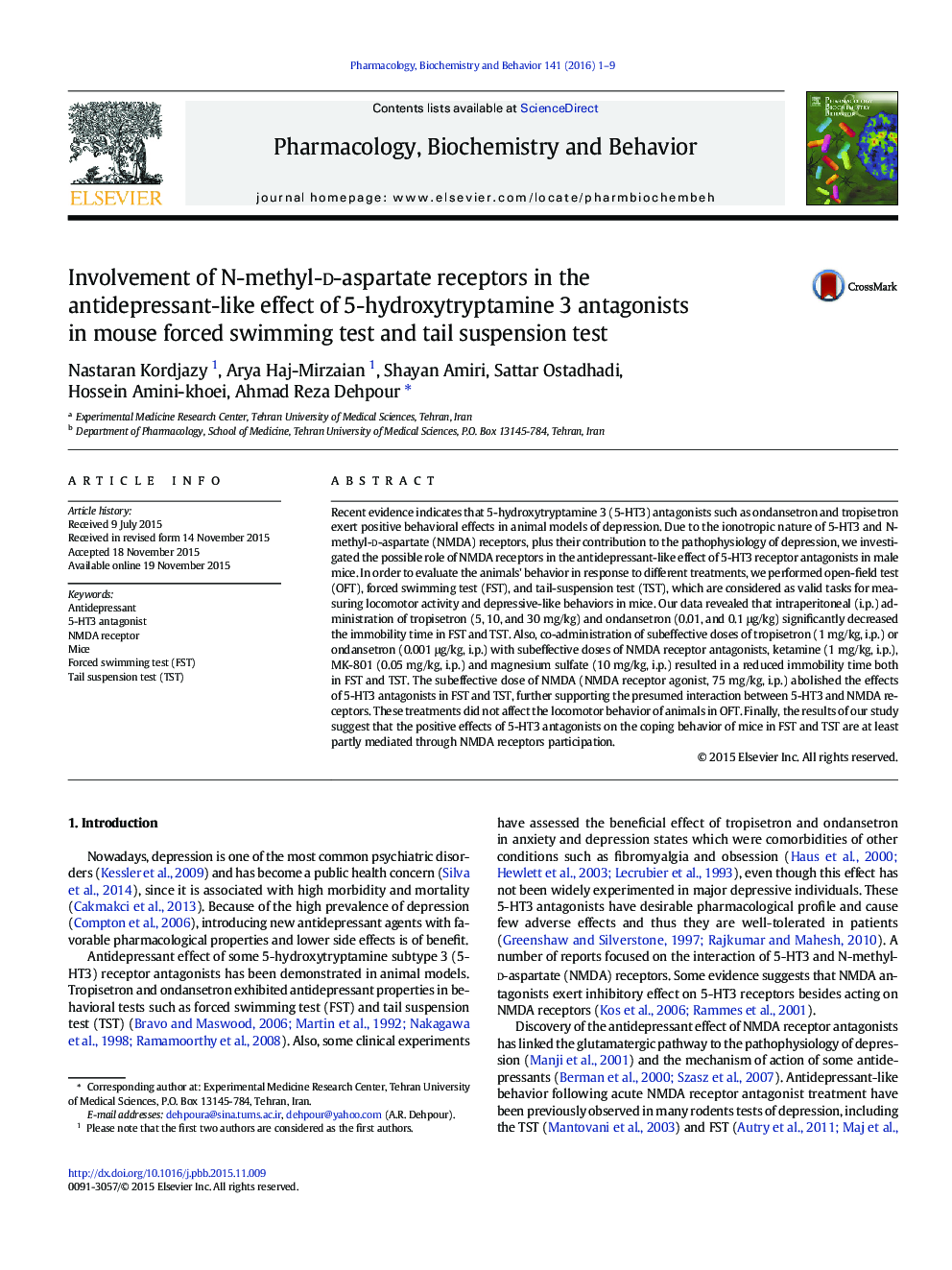| Article ID | Journal | Published Year | Pages | File Type |
|---|---|---|---|---|
| 2012662 | Pharmacology Biochemistry and Behavior | 2016 | 9 Pages |
•5-HT3 antagonists decreased the immobility time of mice in FST and TST.•NMDA antagonists potentiated the effect of 5-HT3 antagonists in behavioral tests.•NMDA receptor agonist prevented the anti-immobility effect of 5-HT3 antagonists.•Antidepressant effect of 5-HT3 antagonists is mediated by NMDA receptor blockade.
Recent evidence indicates that 5-hydroxytryptamine 3 (5-HT3) antagonists such as ondansetron and tropisetron exert positive behavioral effects in animal models of depression. Due to the ionotropic nature of 5-HT3 and N-methyl-d-aspartate (NMDA) receptors, plus their contribution to the pathophysiology of depression, we investigated the possible role of NMDA receptors in the antidepressant-like effect of 5-HT3 receptor antagonists in male mice. In order to evaluate the animals' behavior in response to different treatments, we performed open-field test (OFT), forced swimming test (FST), and tail-suspension test (TST), which are considered as valid tasks for measuring locomotor activity and depressive-like behaviors in mice. Our data revealed that intraperitoneal (i.p.) administration of tropisetron (5, 10, and 30 mg/kg) and ondansetron (0.01, and 0.1 μg/kg) significantly decreased the immobility time in FST and TST. Also, co-administration of subeffective doses of tropisetron (1 mg/kg, i.p.) or ondansetron (0.001 μg/kg, i.p.) with subeffective doses of NMDA receptor antagonists, ketamine (1 mg/kg, i.p.), MK-801 (0.05 mg/kg, i.p.) and magnesium sulfate (10 mg/kg, i.p.) resulted in a reduced immobility time both in FST and TST. The subeffective dose of NMDA (NMDA receptor agonist, 75 mg/kg, i.p.) abolished the effects of 5-HT3 antagonists in FST and TST, further supporting the presumed interaction between 5-HT3 and NMDA receptors. These treatments did not affect the locomotor behavior of animals in OFT. Finally, the results of our study suggest that the positive effects of 5-HT3 antagonists on the coping behavior of mice in FST and TST are at least partly mediated through NMDA receptors participation.
